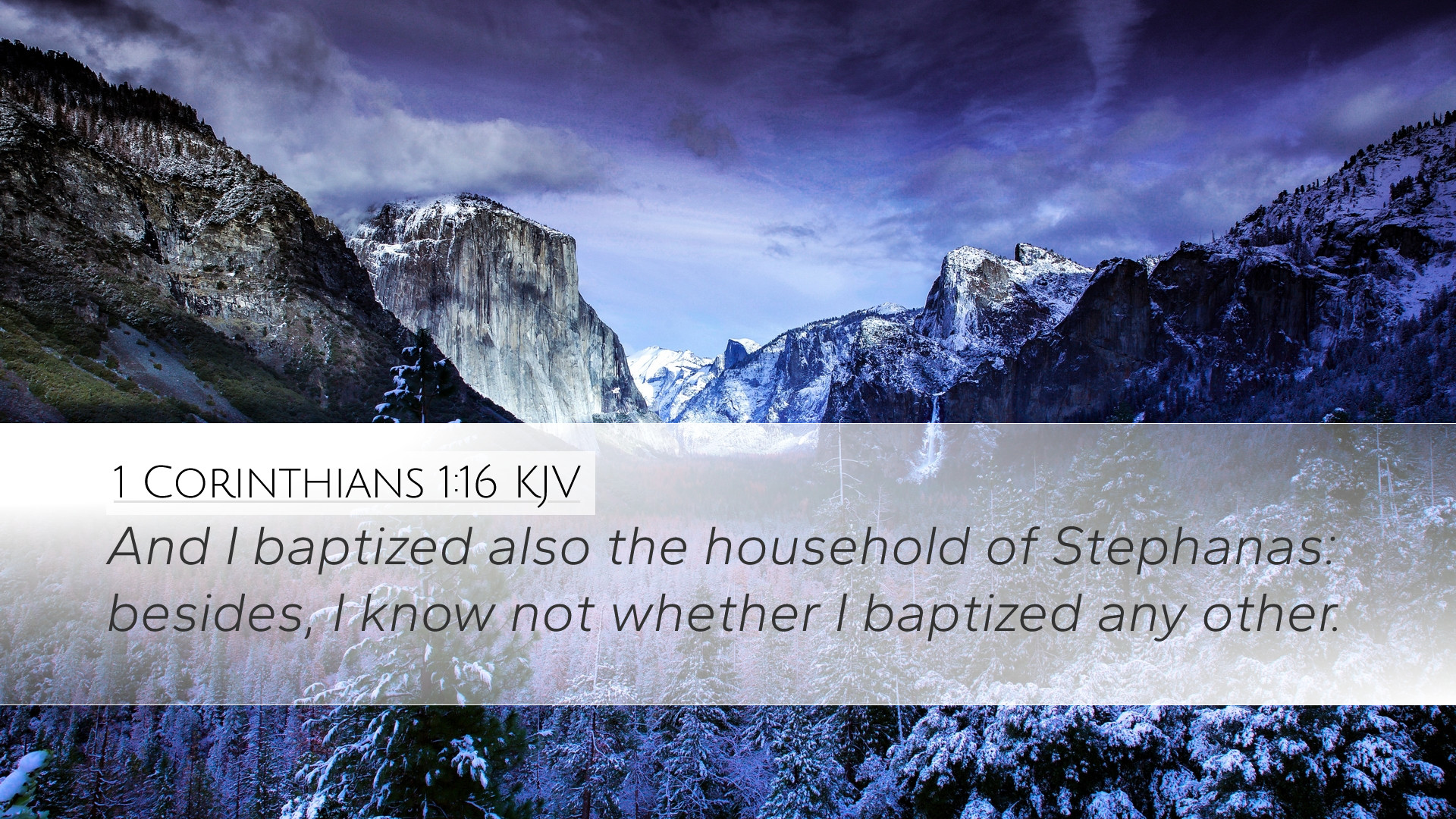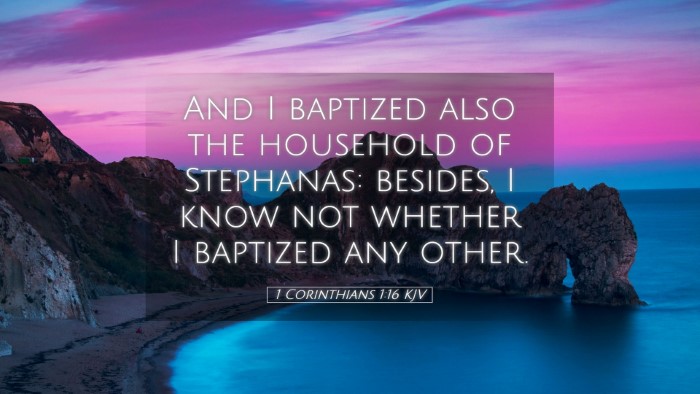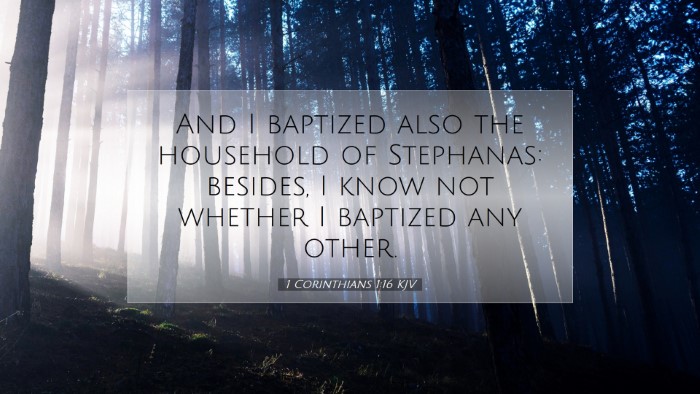1 Corinthians 1:16 Commentary
Verse Reference: 1 Corinthians 1:16 - "And I baptized also the household of Stephanas: besides, I know not whether I baptized any other."
Introduction
The apostle Paul, in this epistle to the Corinthian church, addresses issues regarding divisions and factions that arose among the believers. This specific verse reveals not only his personal involvement in the act of baptism but also serves as a vital commentary on the nature of church leadership and unity.
Contextual Background
Understanding the context of Paul's statement is essential. The Corinthian church was marked by divisions, with followers rallying around different leaders (1 Corinthians 1:10-12). Here, Paul emphasizes that he did not come to establish factions through baptism but to communicate the message of Christ, which is central to the Gospel.
Insights from Matthew Henry
Matthew Henry expounds that Paul mentions the baptized households to assert his role in the establishment of the church without seeking personal credit or allegiance. He draws attention to the fact that he did not prioritize baptism in his ministry, as he aimed to direct attention towards Christ rather than himself. Henry laments how personal attachments to leaders can lead to misunderstandings in the community of faith.
Insights from Albert Barnes
Albert Barnes emphasizes the significance of the household of Stephanas in this context, noting that this family was likely among the first converts in Achaia (1 Corinthians 16:15). He suggests that Paul’s reference to baptism points towards the importance of a believer's influence over their household. Paul’s uncertainty about baptizing others highlights the idea that the act of baptism is secondary to the overarching mission of spreading the Gospel itself.
Insights from Adam Clarke
Adam Clarke delves into the term "household," interpreting it as inclusive of servants and dependents, thus widening the understanding of community and faith within early Christian families. Clarke argues that this verse illustrates Paul’s humility and disregard for personal glory. He interprets Paul's words as personal yet collective, indicating that while he had a role in baptism, it was not to create a following but to fulfill a calling in serving Christ's mission.
Theological Reflections
This verse reflects crucial theological principles:
- Baptism and Community: The mention of household baptism suggests a communal aspect of faith, where entire families could come to believe and partake in the sacrament together.
- Avoiding Division: Paul's overarching message in this text warns against the cult of personality and the dangers of factionalism within the church, arguing for unity in Christ.
- Emphasis on Christ's Message: It becomes evident that the central focus of ministry is not on the acts of baptism, but on preaching the Gospel (1 Corinthians 1:17).
Practical Application
For pastors, students, and theologians, this verse invites several applications:
- Leadership Awareness: Leaders must be cognizant of their influence and avoid behaviors that could lead to division or a focus on self rather than Christ.
- Fostering Community: The act of baptism should be viewed as an act that incorporates the whole community, emphasizing family and household faith.
- Subjugation of Self: Encourage a mindset of humility among church members that mirrors Paul’s approach to ministry. Baptism should serve as a reminder of one's commitment to Christ rather than an elevation of church leaders.
Conclusion
1 Corinthians 1:16 serves as a scholarly reminder of the deep-rooted issues in church dynamics that seem prevalent since the early church's inception. Through the insights of revered commentaries, readers are challenged to reflect on their own practices regarding leadership, community faith, and focus on Christ's message. In this, a proper understanding of baptism and its significance is cultivated, leading to healthier church communities.


